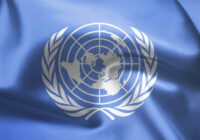Venezuela’s economic crisis can mean almost certain death for the poor and sick.
Since the death in 2013 of the charismatic and controversial Hugo Chávez after 14 years as Venezuelan president, his acolyte and successor, Nicolás Maduro, has steadily been losing his grip on the country. Crime, corruption and increased authoritarianism have made Venezuela one of the world’s most dangerous places.
With the biggest oil reserves in the world, oil exports account for some 95% of the country’s economy, used to fund the extensive social welfare programs under the United Socialist Party (PSUV). But the drop in global oil prices down to $40 per barrel has wreaked havoc on Venezuela’s economy — the International Monetary Fund expects prices to rise by 2,200% this year — bringing on a social crisis complete with food riots and mass unrest. Some 70 people have died since protests broke out in April, following an attempt by a Maduro-loyal Supreme Court to dissolve the National Assembly.
The government had consistently attempted to blame the crisis on “economic war” by the United States, using it to justify the brutal crackdown against all opposition. But the spectacular mismanagement of the country’s resources — Transparency International puts Venezuela in the top 10 most corrupt countries in the world — has resulted in a warfare waged against its own people, with the poor and vulnerable being hit the hardest.
An investigation by Human Rights Watch found that nearly 80% of hospitals lacked essential medicines like antibiotics and painkillers. The president of the Venezuelan Federation of Pharmacies estimated that, in 2016, some 85% of medication that should be stocked by pharmacies was either unavailable or difficult to obtain, meaning that a black market for both essential food stuffs and live-saving medicine is often the last resort for those who can hardly carve out an living on non-existent salaries.
As the country spins out of control on the streets clouded by tear gas, children are dying in hospitals of perfectly preventable diseases.
The views expressed in this article are the author’s own and do not necessarily reflect Fair Observer’s editorial policy.
Photo Credit: Alfredo Allais
Support Fair Observer
We rely on your support for our independence, diversity and quality.
For more than 10 years, Fair Observer has been free, fair and independent. No billionaire owns us, no advertisers control us. We are a reader-supported nonprofit. Unlike many other publications, we keep our content free for readers regardless of where they live or whether they can afford to pay. We have no paywalls and no ads.
In the post-truth era of fake news, echo chambers and filter bubbles, we publish a plurality of perspectives from around the world. Anyone can publish with us, but everyone goes through a rigorous editorial process. So, you get fact-checked, well-reasoned content instead of noise.
We publish 2,500+ voices from 90+ countries. We also conduct education and training programs
on subjects ranging from digital media and journalism to writing and critical thinking. This
doesn’t come cheap. Servers, editors, trainers and web developers cost
money.
Please consider supporting us on a regular basis as a recurring donor or a
sustaining member.
Will you support FO’s journalism?
We rely on your support for our independence, diversity and quality.






